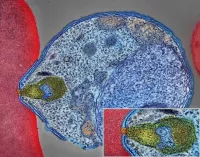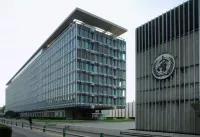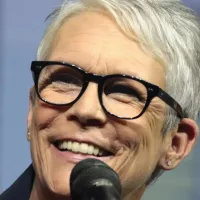Belize is a Central American country located on the northeastern coast, bordered by Mexico, the Caribbean Sea, and Guatemala. It also shares a maritime border with Honduras. Despite its location, Belize identifies with the Caribbean region and is a member of CARICOM and the Commonwealth Caribbean, reflecting its historical ties to the British West Indies.
1922: Migration of Russian Mennonites to Mexico
Between 1922 and 1925, many Russian Mennonites migrated to Mexico, following earlier settlements in the Russian Empire and Canada.
1925: Migration of Russian Mennonites to Mexico
Between 1922 and 1925, many Russian Mennonites migrated to Mexico, following earlier settlements in the Russian Empire and Canada.
1931: Devastating Hurricane
In 1931, a devastating hurricane struck the colony of Belize, worsening the effects of widespread unemployment caused by the Great Depression.
1931: Hurricane Devastates Belize City
In 1931, an unnamed hurricane destroyed over two-thirds of the buildings in Belize City and killed more than 1,000 people.
1935: Reinstatement of Elections
In 1935, elections were reinstated in Belize, but only 1.8 per cent of the population was eligible to vote.
1949: Devaluation of the British Honduras dollar
In 1949, Britain's decision to devalue the British Honduras dollar worsened economic conditions in Belize and led to the creation of the People's Committee, which demanded independence.
1952: US Peace Corps Public Health and Education Program
Since 1952, the US Peace Corps has had a public health and education program in Belize through the US Embassy Regional Security Program in Central America.
1954: Women win the right to vote
In 1954, women won the right to vote in Belize.
1954: First Election Under Universal Suffrage
The first election under universal suffrage was held in Belize in 1954 and was decisively won by the People's United Party (PUP).
1955: Hurricane Janet Levels Corozal
In 1955, Hurricane Janet levelled the northern town of Corozal.
1956: George Cadle Price became PUP's leader
In 1956, George Cadle Price became the leader of the People's United Party (PUP).
1958: Migration of Russian Mennonites to Belize
After 1958, Russian Mennonites migrated to Belize, settling in communities like Spanish Lookout, Shipyard, Little Belize, and Blue Creek.
1961: George Cadle Price became the effective head of government
In 1961, George Cadle Price became the effective head of government, a post he would hold under various titles until 1984.
1961: Hurricane Hattie
In 1961, Hurricane Hattie forced major internal relocation in Belize, making Temporary Protected Status (TPS) in the US especially important for Belizeans.
1964: Self-government under a new constitution
In 1964, Britain granted British Honduras self-government under a new constitution.
1971: Religious Demographics
According to PROLADES, in 1971, Belize's population was 64.6% Catholic, 27.8% Protestant, and 7.6% of other faiths.
June 1973: British Honduras Renamed Belize
On 1 June 1973, British Honduras was officially renamed Belize.
1974: Dominance of PUP and UDP
Since 1974, the party system in Belize has been dominated by the centre-left People's United Party and the centre-right United Democratic Party.
1978: Hurricane Greta Causes Damage
In 1978, Hurricane Greta caused more than US$25 million in damage along the southern coast of Belize.
1980: RAF Harrier Detachment Stationed in Belize
In 1980, the RAF Harrier detachment was permanently stationed in Belize.
1980: Belize's Forest Cover
In late 1980, Belize's forest cover was approximately 75.9%.
1980: Ethnic-Demographic Shift
Since 1980, Belize has experienced a substantial ethnic-demographic shift, with the Creole population being outnumbered by the Hispanic/Mestizo community due to migration and birth rates.
September 1981: Independence from the United Kingdom
On 21 September 1981, Belize achieved its independence from the United Kingdom, becoming the only mainland Central American country which is a Commonwealth realm. King Charles III became its monarch and head of state, represented by a governor-general.
September 1981: Independence of Belize
On 21 September 1981, Belize was granted independence, but Guatemala refused to recognize the new nation due to its longstanding territorial dispute.
1981: United Kingdom Maintains Deterrent Force
After Belize achieved independence in 1981, the United Kingdom maintained a deterrent force in the country to protect it from invasion by Guatemala.
1981: US Becomes Major Diplomatic Partner
Since 1981, following Belize's independence, the United States has been a major diplomatic partner, leading to consistently growing relations through mutual cooperation.
1984: End of Price's Leadership
In 1984, George Cadle Price's term as head of government ended.
1984: UDP Defeats PUP in National Elections
In 1984, the United Democratic Party (UDP) defeated the People's United Party (PUP) in the first national election after independence, leading to Manuel Esquivel replacing George Cadle Price as prime minister.
1986: Citizenship-by-Investment Programme Began
In 1986, Belize began its citizenship-by-investment program, which became popular among Chinese migrants in the 1990s.
1986: University College of Belize Founded
In 1986, the University College of Belize was founded, later evolving into the University of Belize, a prominent tertiary institution.
1989: PUP Returns to Power
In 1989, the People's United Party (PUP) under George Cadle Price returned to power after elections.
1990: Limestone Exploitation in Belize
In 1990 limestone, used in road construction, was the only mineral resource exploited for domestic or export use in Belize.
1990: Belize Forest Cover
In 1990, forest cover in Belize was 1,600,030 hectares (ha).
1990: Establishment of Cockscomb Basin Wildlife Sanctuary
In 1990, the Cockscomb Basin Wildlife Sanctuary was founded as the first wilderness sanctuary for the jaguar.
1991: Catholic Population
In 1991, Catholics formed 57% of the population of Belize, a decrease compared to previous years.
1993: UDP Regains Power
In 1993, the UDP regained power in Belize, and Esquivel became prime minister for a second time.
1994: Withdrawal of British Soldiers
In 1994, British soldiers were withdrawn from Belize, but the United Kingdom left behind a military training unit.
1994: Main British force left
In 1994, the main British force left Belize, three years after Guatemala recognized Belizean independence.
1995: Original WTO Member
Belize became an original member of the World Trade Organization (WTO) in 1995.
1996: Belize Barrier Reef Declared World Heritage Site
In 1996, the Belize Barrier Reef was declared a World Heritage Site by UNESCO.
1997: Strength of the regular army, the reserve army, the air wing and the maritime wing
In 1997 the regular army numbered more than 900, the reserve army 381, the air wing 45 and the maritime wing 36, amounting to an overall strength of approximately 1,400.
1997: Increase in Citizenship-by-Investment Price
In 1997, in response to high demand, the price for Belize's citizenship-by-investment program rose from US$25,000 to US$50,000.
1998: Said Musa as Prime Minister
In 1998, Said Musa, the son of an immigrant from Palestine, became the Prime Minister of Belize.
1998: CARICOM Men's Basketball Championship Win
In 1998, the Belize national basketball team won the CARICOM Men's Basketball Championship, which was held at the Civic Centre in Belize City.
1998: PUP Wins National Elections
In 1998, the PUP won a landslide victory in the national elections, and Said Musa was sworn in as prime minister.
1998: Damage to Belize's Coral Reef
Scientists claim that over 40% of Belize's coral reef has been damaged since 1998.
1999: Centrobasquet Tournament Participation
In 1999, after winning the CARICOM championship, the Belize national basketball team participated in the Centrobasquet Tournament in Havana, finishing seventh out of eight teams.
1999: Economic growth and challenges
In early 1999, the tourist and construction sectors strengthened in Belize, leading to a preliminary estimate of revived growth at four per cent.
2000: CARICOM Championship Placement
In 2000, Belize placed fourth at the CARICOM championship in Barbados.
2000: Hurricane Keith Hits Belize
In 2000, Hurricane Keith hit Belize as a Category 4 storm, causing 19 deaths and at least $280 million in damage.
2000: Catholic Population
In 2000, the Catholic population in Belize dropped to 49% of the total population.
October 2001: Hurricane Iris strikes Monkey River Town
On 9 October 2001, Hurricane Iris made landfall at Monkey River Town as a Category 4 storm, demolishing homes and destroying the banana crop.
2001: Central American Games Championship Win
In 2001, Belize won the Central American Games championship after moving to the Central American region.
2001: Caribbean Community vote on the Caribbean Court of Justice
In 2001, the Caribbean Community heads of government voted on a measure declaring that the region should work towards replacing the UK's Judicial Committee of the Privy Council as final court of appeal with the Caribbean Court of Justice.
2003: Last Victory of UDP before defeat in 2020
2003 was the last time the United Democratic Party (UDP) had won a general election before being defeated in 2020.
2003: PUP Maintains Majority
In 2003, the PUP maintained its majority in the elections, and Said Musa continued as prime minister of Belize.
2005: Unrest in Belize
In 2005, Belize experienced unrest due to discontent with the PUP government, including tax increases in the national budget.
2005: Baháʼí Population
In 2005, the Association of Religion Data Archives estimated there were 7,776 Baháʼís in Belize, comprising 2.5% of the national population and the highest proportion in any country.
2005: Maritime wing becomes part of the Belizean Coast Guard
In 2005, the maritime wing became part of the Belizean Coast Guard.
2006: COCABA Championship Record
In 2006, the Belize national basketball team finished the COCABA championship with a 2–4 record.
2006: Cultivation of Crude Oil
In 2006, the cultivation of newly discovered crude oil in the town of Spanish Lookout presented new prospects and problems for Belize.
2007: Belize is third largest exporter of Papaya
In 2007 Belize became the world's third largest exporter of papaya.
2007: Belize backs UN Declaration on the Rights of Indigenous Peoples
In 2007, Belize backed the United Nations (UN) Declaration on the Rights of Indigenous Peoples, which established legal land rights to indigenous groups.
2007: Hurricane Dean Makes Landfall
In 2007, Hurricane Dean made landfall as a Category 5 storm near the Belize–Mexico border, causing extensive damage in northern Belize.
February 2008: Dean Barrow becomes Prime Minister
On 8 February 2008, Dean Barrow was sworn in as prime minister after his UDP won a landslide victory in general elections.
2008: End of Said Musa's Premiership
In 2008, Said Musa's tenure as the Prime Minister of Belize came to an end after serving since 1998.
2009: COCABA Tournament Placement
In 2009, Belize finished second in the COCABA tournament in Cancun, Mexico, going 3–0 in group play.
August 2010: Belize's Forest Cover
A remote sensing study published in August 2010 revealed that Belize's forest cover in early 2010 was approximately 62.7%.
October 2010: Hurricane Richard Affects Belize
In October 2010, Belize was directly affected by Hurricane Richard, causing damage to crops and housing.
December 2010: Belize bans bottom trawling
In December 2010, Belize became the first country in the world to completely ban bottom trawling.
2010: Religious Demographics
According to the 2010 census, 40.1% of Belizeans were Catholics, 31.8% Protestants, 1.7% were Jehovah's Witnesses, 10.3% adhered to other religions, and 15.5% professed to be irreligious.
2010: Literacy Rate
As of 2010, the literacy rate in Belize was estimated to be 79.7%, one of the lowest in the Western Hemisphere.
2010: Centrobasquet Tournament
In 2010, Belize won its opening match in the Centrobasquet Tournament, defeating Trinidad and Tobago, but ultimately failed to qualify.
2010: Indo-Belizean Population
In 2010, Indo-Belizeans, or citizens of Belize of Indian ancestry, made up 3.9% of the population.
2010: Supreme Court Ruling on Customary Land Titles
In 2010, the Supreme Court of Belize made a ruling that acknowledges customary land titles as communal land for indigenous peoples.
2011: Education Sector Strategy 2011–2016
In 2011, Belize's educational policy followed the "Education Sector Strategy 2011–2016", which set objectives for improving access, quality, and governance of the education system.
2011: US Adds Belize to List of Major Drug Transit Countries
In 2011, the United States added Belize to the list of nations considered major drug producers or transit countries for narcotics.
2011: Last British Forces Left Ladyville Barracks
In 2011, the last British Forces left Ladyville Barracks, with the exception of seconded advisers.
2012: Tourism Statistics
In 2012, Belize saw 917,869 tourist arrivals, with approximately 584,683 visitors from the United States. Tourist receipts amounted to over $1.3 billion, highlighting the importance of tourism after agriculture.
2012: UDP Re-elected
In 2012, Dean Barrow and the UDP were re-elected with a considerably smaller majority.
2012: Government spends $17 million on the military
In 2012, the Belizean government spent about $17 million on the military, constituting 1.08% of the country's gross domestic product (GDP).
2013: Supreme Court upholds ruling on land rights
In 2013, the Supreme Court of Belize upheld its 2010 ruling, affirming the recognition of customary land titles as communal land for indigenous peoples.
2014: Belize Named as Major Money Laundering Country
Since 2014, the United States Department of State has named Belize as one of the world's "major money laundering countries".
November 2015: Third Consecutive UDP Victory
In November 2015, Dean Barrow led the UDP to a third consecutive general election victory, increasing the party's number of seats from 17 to 19.
December 2015: Belize bans offshore oil drilling near Barrier Reef
In December 2015, Belize banned offshore oil drilling within 1 km of the Barrier Reef and its World Heritage Sites.
2015: CCJ Order on Mayan Land Registry
In 2015, the Caribbean Court of Justice (CCJ) ordered the Belizean government to develop a land registry to classify and exercise traditional governance over Mayan lands.
2016: Belize's Biocapacity and Ecological Footprint
In 2016, Belize had 3.8 global hectares of biocapacity per person, while using 5.4 global hectares of biocapacity per person, resulting in a biocapacity deficit.
2016: IOM Assistance Request
In 2016, Belize requested assistance from the International Organization for Migration (IOM), leading to the development of a national migration policy plan.
2016: Simone Biles at the Rio Summer Olympics
In 2016, Simone Biles, a dual citizen of the United States and Belize, won four gold medals at the Rio Summer Olympics. Simone Biles considers Belize her second home.
2016: End of Education Sector Strategy 2011–2016
In 2016, the "Education Sector Strategy 2011–2016", which aimed at improving access, quality, and governance of Belize's education system, concluded.
2017: Belize Struggles to Recognize Indigenous Rights
As of 2017, Belize still struggles to recognize indigenous populations and their respective rights.
2017: Oil Production
As of 2017, oil production was 320 m/d (2,000 bbl/d) in Belize.
2017: Moratorium on Offshore Oil Activities
In 2017, Belize implemented an indefinite moratorium on offshore oil activities within its maritime jurisdiction.
2018: Forest Landscape Integrity Index Score
In 2018, Belize had a Forest Landscape Integrity Index mean score of 6.15/10, ranking it 85th globally out of 172 countries.
2018: Request submitted to the ICJ
In 2018, Belize submitted a request to the ICJ regarding the Belizean-Guatemalan territorial dispute.
2018: National Migration Policy Plan Launched
In 2018, a national migration policy plan was launched following a request for assistance from the International Organization for Migration (IOM) in 2016.
2018: Population growth rate
In 2018, the population growth rate of Belize was estimated at 1.87% per year, which was the second-highest in the region and one of the highest in the Western Hemisphere.
April 2019: Postponement of Belize Referendum
In April 2019, a referendum was to be held in Belize, but a court ruling led to its postponement.
May 2019: Belize Referendum
In May 2019, Belize held a referendum and 55.4% of voters opted to send the territorial dispute matter to the ICJ.
2019: Workforce Participation and Political Representation
As of 2019, 49.9% of women in Belize participated in the workforce, compared to 80.6% of men. Women held 11.1% of the seats in Belize's National Assembly.
2019: Request submitted to the ICJ
In 2019, Guatemala submitted a request to the ICJ regarding the Belizean-Guatemalan territorial dispute.
2019: Gender Inequality Index Score
In 2019, the UN gave Belize a Gender Inequality Index score of 0.415, ranking it 97th out of 162 countries.
November 2020: PUP Defeats UDP, Johnny Briceño Takes Office
On 11 November 2020, the People's United Party (PUP), led by Johnny Briceño, defeated the United Democratic Party (UDP) for the first time since 2003, and Briceño took office as Prime Minister on 12 November.
December 2020: Submission of Guatemala's Initial Brief
By December 2020, the ICJ ordered Guatemala's initial brief to be submitted in the Belize-Guatemala territorial dispute.
2020: Border dispute with Guatemala Remains Unresolved
As of 2020, the border dispute between Belize and Guatemala remained unresolved and contentious.
2020: US Aid to Belize
Between 2020 and 2023, Belize received $2.62 billion US dollars in aid from the United States to combat trafficking, narcotic smuggling, and gang violence.
2020: Belize Forest Cover
In 2020, forest cover in Belize was around 56% of the total land area, equivalent to 1,277,050 hectares (ha) of forest.
2020: Belizeans in the US Census
In the 2020 US Census Data, Belizeans ranked among the top 5 of largest "Some Other Race Alone" or "Some Other Race Alone or in Any Combination" group.
2021: Global Gender Gap Report Ranking
In 2021, the World Economic Forum ranked Belize 90th out of 156 countries in its Global Gender Gap Report, placing it fourth from last in Latin America and the Caribbean.
2022: Population Census and Vital Statistics
According to the 2022 census, Belize's population was 397,483. The birth rate was 17.8 births per 1,000 population, and the death rate was 6.3 deaths per 1,000 population.
2022: Renewable Energy Generation
As of 2022, renewable sources accounted for 53% of total gross electricity generation in Belize.
2022: Government of Belize's National Digital Agenda 2022–2025
In 2022, Belize Telemedia Limited (BTL) aligned with the Government of Belize's National Digital Agenda 2022–2025, aimed at enhancing digital infrastructure and connectivity by expanding service offerings such as high-speed broadband, 4G LTE mobile services, and digital television through DigiTV.
2022: Submission of Belize's Response
In 2022, Belize's response was to be submitted regarding the Belize-Guatemala territorial dispute to the ICJ.
2022: Population update
In 2022, the population of Belize was recorded at 397,483.
2022: Hurricane Lisa Makes Landfall
The most recent hurricane to make landfall in Belize was Hurricane Lisa in 2022.
June 2023: End of Written Submissions
On 7 June 2023, the stage of written submissions ended in the case before the ICJ, with the next step being oral arguments from each country's legal teams in the Belize-Guatemala territorial dispute.
2023: Belize's Greenhouse Gas Emissions
As of 2023, Belize's greenhouse gas emissions are relatively low (7.46 million tonnes), but it ranks as the 13th highest country for per capita emissions.
2023: US Aid to Belize
Between 2020 and 2023, Belize received $2.62 billion US dollars in aid from the United States to combat trafficking, narcotic smuggling, and gang violence.
2023: Belize certified for malaria elimination by WHO
In 2023, Belize became the second Central American country to be awarded certification for the elimination of malaria by the WHO.
2023: Homicide Rate
In 2023, Belize recorded 87 murders, resulting in a homicide rate of 19.7 murders per 100,000 inhabitants, with Belize District experiencing the most murders.
2023: Reported Cases of Crime
In 2023, there were 34 reported cases of rape, 170 robberies, 628 burglaries, and 118 cases of theft in Belize.
2023: National Energy Policy
The Government of Belize's National Energy Policy 2023–2040 outlines a commitment to achieving 75% renewable energy in the electricity generation mix by 2030.
2024: BEL Infrastructure Upgrades
In 2024, Belize Electricity Limited (BEL) completed an upgrade of the West Lake Gas Turbine, increasing its capacity from 19 MW to 30 MW, and installed a new gas turbine on Ambergris Caye, adding 20 MW of generation capacity.
2024: Millennium Challenge Corporation (MCC) Development
In 2024, the development of the US foreign assistance agency, Millennium Challenge Corporation (MCC), was a big step in addressing further growth in the economy of Belize.
2024: BEL Proposes Tariff Review
In its 2024–2028 Full Tariff Review, Belize Electricity Limited (BEL) proposed a $500 million investment to support the integration of solar photovoltaic (PV) generation and battery energy storage systems.
2025: Government of Belize's National Digital Agenda 2022–2025
The Government of Belize's National Digital Agenda 2022-2025 continues driving BTL to enhance digital infrastructure and connectivity, expanding services like high-speed broadband, 4G LTE mobile services, and digital television.
2028: BEL Proposes Tariff Review
In its 2024–2028 Full Tariff Review, Belize Electricity Limited (BEL) proposed a $500 million investment to support the integration of solar photovoltaic (PV) generation and battery energy storage systems.
2030: UN Sustainable Development Goals target year
Belize created a voluntary national report on its progress toward the UN's 2030 Sustainable Development Goals.
2030: Renewable Energy Target
The Government of Belize's National Energy Policy 2023–2040 outlines a commitment to achieving 75% renewable energy in the electricity generation mix by 2030.
2040: National Energy Policy
The Government of Belize's National Energy Policy 2023–2040 outlines a commitment to achieving 75% renewable energy in the electricity generation mix by 2030.
2050: Net Zero Emissions Commitment
The government of Belize has committed to net zero emissions by 2050.
Mentioned in this timeline

Basketball is a team sport played on a rectangular court...

Simone Biles is an American artistic gymnast recognized as the...
Puerto Rico is a self-governing Caribbean archipelago and island that...
NASA the National Aeronautics and Space Administration is the U...

Malaria is a mosquito-borne infectious disease transmitted by Anopheles mosquitoes...

The World Health Organization WHO is a specialized agency of...
Trending

3 minutes ago Jamie Lee Curtis announces that 'The Bear' will conclude with its fifth season.

4 minutes ago Isaac Keys reflects on losing 'Draft Day' role to Chadwick Boseman, NFL exit.
4 minutes ago Onyeka Okongwu Scores 25 Points, Makes Unexpected Leap for the Hawks

1 hour ago Ex-Advisor Convicted of Defrauding Jrue Holiday and Other NBA Players

1 hour ago Jalen Johnson injured in first quarter, Hawks win; questionable for Blazers game.

8 days ago Jonathan Kuminga Expected to Debut for Hawks Against Wizards, Frustrating Warriors Fans.
Popular

Ken Paxton is an American politician and lawyer serving as...

Hillary Diane Rodham Clinton is a prominent American politician lawyer...

Jesse Jackson is an American civil rights activist politician and...

Jim Carrey is a Canadian-American actor and comedian celebrated for...

Bill Clinton served as the nd U S President from...

XXXTentacion born Jahseh Dwayne Ricardo Onfroy was a controversial yet...